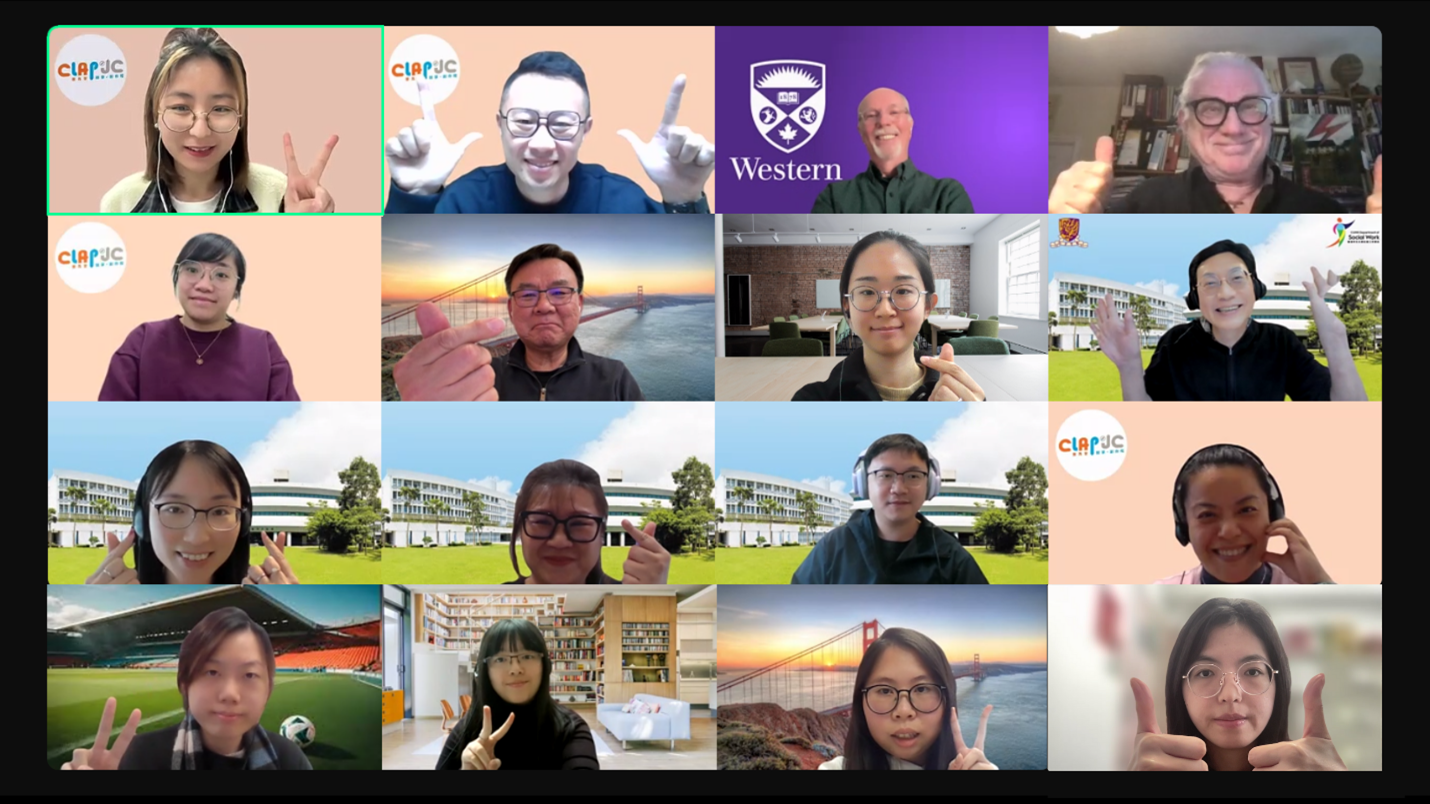Funded by the Hong Kong Jockey Club Charities Trust and organised by the Department of Social Work, CUHK, the CLAP@JC Community of Practice Session on “Enhancing Youth Agency & Well-Being through Career and Life Development (CLD) Projects” was held successfully on 17 January 2025 via Zoom.
105 participants from different parts of the world, including Hong Kong, Mainland China, Canada, South Korea and the United Kingdom, attended the event.
We were privileged to invite four esteemed guest speakers to share their insights, including: Mr. Sparkle Yu, Social Work Supervisor, Caritas Jockey Club Integrated Service For Young People - Wong Tai Sin; Ms. Kitty Lung, Assistant Supervisor (Children & Youth Service), The Chinese Rhenish Church H.K. Synod-Choi Wan Rhenish ICYSC; Prof. Bong Joo Lee, Professor in the Department of Social Welfare at Seoul National University; and Prof. James Côté, Emeritus Professor in the Department of Sociology at The University of Western Ontario.
The presentations highlighted the critical importance of personal agency, mental wellness and subjective well-being in supporting youth in their career and life development (CLD).
Mr. Sparkle Yu and Ms. Kitty Lung, as representatives of Wong Tai Sin Consortium, introduced the We.CLAP programme, a pioneering initiative that integrates mental wellness into CLD journey. The programme focuses on nurturing self-awareness, emotional resilience and peer connections, using creative arts as a medium for emotional expression, self-discovery and relationship-building. By documenting best practices for scalability, We.CLAP not only equips youth with tools for emotional well-being but also fosters resilience and prepares them for long-term career success.
Prof. Bong Joo Lee made references to research data from the International Survey of Children's Well-Being to discuss the significant differences in children's subjective well-being (SWB) across countries. The findings suggest that cultural bias alone cannot account for all the differences, and that time use, relationships and self are the most important factors in explaining the variations in children's SWB across nations. The study provides valuable insights for informing relevant social policies.
Prof. James Côté explored the critical role of personal agency in navigating today’s increasingly globalised and uncertain world, where traditional norms and structures have diminished. He commended CLAP@JC’s Youth Development and Intervention Framework (YDIF) for its innovative approach to fostering agency through the development of career competencies, the establishment of strong social support systems, and the provision of tailored opportunities, particularly for disadvantaged youth.
These discussions underscored the importance of integrated and holistic strategies for youth empowerment. Projects like CLAP@JC and We.CLAP exemplify impactful frameworks that address key challenges by strengthening resilience, fostering agency and supporting both emotional and career development, equipping youth for a brighter and more sustainable future.
We were honoured to have Prof. Howard Williamson, Professor of European Youth Policy, Faculty of Business and Creative Industries, University of South Wales, as a commentator during the session. Prof. Williamson highlighted the importance of empowering disengaged youth through personal growth, structured opportunities, and supportive guidance. He praised the We.CLAP programme for its emphasis on the concept of “serious leisure”, which highlights how arts can foster reflection and development. He also emphasised the critical role of social workers as facilitators and companions, helping young people build self-awareness and confidence. Drawing on Prof. Côté’s idea of “opportunity ladders,” Prof. Williamson stressed the need to create equal opportunities for disadvantaged youth and highlighted the importance of practitioners employing “skill coercion” to motivate youth participation. Additionally, he appreciated Prof. Lee’s insights on how a sense of agency often begins in private life and requires support to prevent feelings of neglect. Overall, Prof. Williamson reflected that the discussions reinforced the centrality of personal transformation as a precursor to broader life changes and the necessity of addressing issues like modern disconnection and mental health challenges through a holistic and supportive approach.

Group Photo of Speakers, Commentators and Participants







